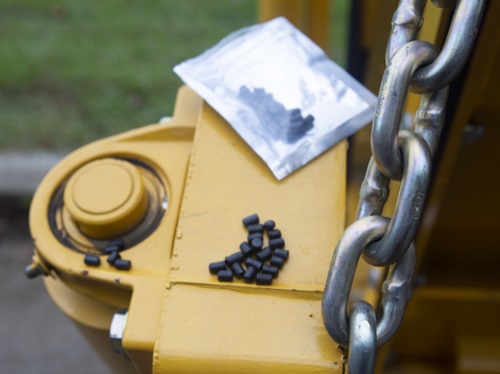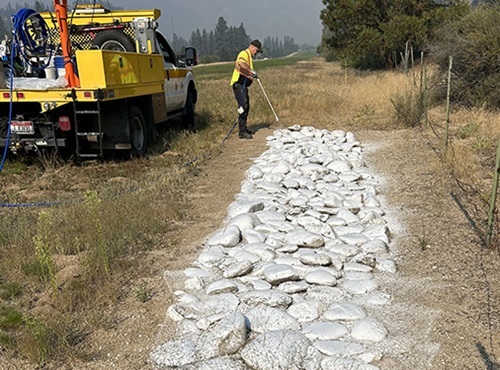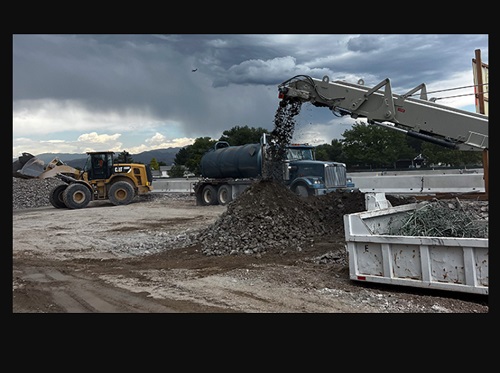For several weeks now, the Pennsylvania Department of Transportation has been dumping plastic waste onto the roadway near a state park – and that is actually a good thing.
[Above photo by PennDOT]
PennDOT is wrapping up a pilot project that uses pellets (seen in above photo) made from grocery bags, milk jugs, and other recyclable plastics in an asphalt reconstruction project. The pellets are being added to the asphalt in two quarter-mile test sections of the project at the entrance to Ridley Creek State Park, about 15 miles west of Philadelphia.
The expected benefits from this project – due to wrap up by the end of November – include diverting waste plastics from landfills, helping to establish a market for recycled plastics, and extending the useful life of asphalt pavements.
“We are very pleased when we can pursue innovations bringing benefits to the public, our transportation assets, and our environment,” Mike Keiser, PennDOT’s acting deputy secretary for highway administration, explained in a recent news release.

The pellets are comprised of high-density and low-density polyethylene – known colloquially as Number 2 and 4 plastics, respectively – plus an additive. Common Number 2 plastic products include milk jugs, shampoo bottles, and some plastic toys. Number 4 plastics, by contrast, are lighter and best known for making grocery bags, shrink-wrap, and bread bags to package.
[Click here to learn more about how to recycle different types of plastic.]
First, those pellets are mixed together with recycled asphalt pavement or RAP, which is then heated and applied to the road surface. The entire process is “relatively consistent with conventional pavement preparation processes,” noted PennDOT Press Secretary Alexis Campbell.
The amount of pellet material can vary from job to job, usually comprising two to four percent of the asphalt binder, Campbell said. If a project uses the maximum amount of pellet material in an application, that can translate to up to three million plastic grocery bags per mile paved.
As PennDOT evaluates the project for performance and environmental properties, it is also looking for other suitable roadway locations for testing “plastic asphalt,” Campbell said.
The agency added that this pilot project is coordinated through PennDOT’s Strategic Recycling Program, funded through the state’s Department of Environmental Protection.




